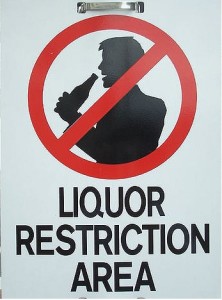
The liquor ban within 500 meter radius alongside national and state highways at hotels, restaurants, bars and shops have caused mayhem amongst owners and its employees. Where the decision is torn between what’s ethical and what’s practical, hotels restaurants and bars are suffering lean times in their business in cities like Kolkata, Pune, Delhi, Chennai, Hyderabad, Agra, Kerala, Bengaluru, Jaipur, Ahmedabad, Goa and Mumbai.
Pune is worst hit by the ban where almost 71% of the hotels and restaurants are affected due to the decision as more than 15 state highways pass through the city, followed by Kolkata and Agra while businesses in the financial capital of India and Goa will be less affected. In a survey conducted by Credit Rating Information Services of India Limited (Crisil), it was found that up to 30% of premium segment hotels of 12 major cities have already been affected by the Supreme Court’s decision. After assessing 383 premium segment hotels across these cities, 102 hotels stand affected i.e. almost 27% of premium hotels will be urged to stop the sale of liquor.
This proves that 3 star and 4 star hotels and restaurants within the city areas will now compete with premium segment hotels and restaurants along highways. In a country where travel and tourism play an important role in revenue generation, hotels and restaurants have observed a drop in reservations for meetings, incentives, conferences, exhibitions (MICE), events, and weddings and have calculated increased cancellations in bookings. According to India Brand Equity Foundation, with an estimate of almost 9% of the total employment opportunities in 2016 i.e. jobs of almost 38.4 million people that are generated in the travel and tourism sector are now under threat where the number is expected to increase 2% a year i.e. 46.42 million jobs by 2026.
In order to cope with the slack in business, hoteliers and restaurant owners are implying direct and indirect ways to avoid revenue losses. Many restaurateurs are trying different ways of increasing the actual distance that a person may have to traverse to reach the destination by changing entrances, adding hardscape/landscape. Where many states are in the process of de-notifying state highways to reduce the impact of ban in the cities, the Maharashtra Government has recently accepted to de-notify the Eastern and Western Express Highways within the Municipal Corporation of Greater Mumbai and being transferred to MMRDA for 5 years.
However if we look on the other side of the grass, women and families strongly agree with the Supreme Court’s decision to avoid cases of drink and drive along the highways. Haryana women and child development minister Kavita Jain stated that “Drinking liquor is a social evil, any addiction is a habit,” she said, adding that “the government wants to save people of the country from bad habits and addiction.”
Thus the Apex Court is likely to stand by its order on liquor ban, while affecting more than 1 million jobs by putting thousands of valid businesses employing lakhs of people at risk. On one hand restaurants and bars are unsure about the recovery for their losses while on the other hand, Riyaaz Amlani, president of National Restaurant Association of India (NRAI) has stated that the body is lobbying at every stage with tourism and chief ministers of various states.
Although the decision where restaurants and bars will be able to serve alcohol will be issued in week or two, the Supreme Court is open to suggestions to balance all interests while stakeholders and state governments are appealing to denotify several state and national highways to save businesses from further losses.

